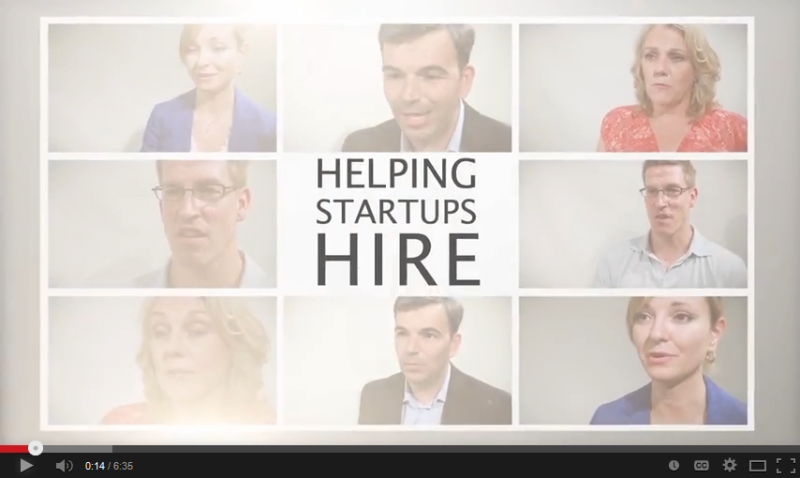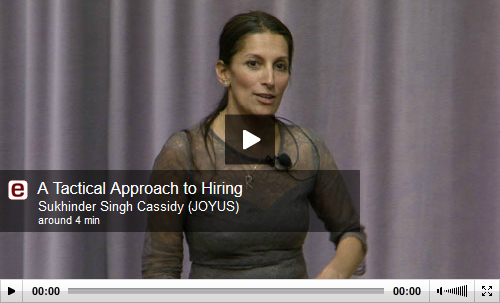
There’s no doubt that a small team of A+ talent will run circles around a larger team of B and C level employees. The best hires will not only meet your expectations, but they’ll also lend their enthusiasm and critical thinking to steer your startup toward new opportunities. However, finding let alone hiring this kind of individual can be tricky, especially when your business doesn’t have the resources to leverage the expertise of a corporate recruiter. Fortunately, by following the tips below, you should be able to develop your hiring strategy in such a way that increases your chances of scoring big talent for your small business.
-
Start in advance
Hiring is a commitment. Seeking out talent, reviewing candidates and interviewing potential hires all require a substantial time commitment, and you never know when unexpected circumstances might draw your attention elsewhere. By starting the hiring process well in advance, you give yourself enough time to firmly establish your needs. First, try to identify the desired outcomes for the position you’re trying to fill. How long do you intend for this individual to be with your company and what will they need to produce or execute in that time? Based on these criteria, you should then be able to lay out a set of qualifications and hard skills your ideal candidate will require. When hiring for an early-stage startup, consider giving added weight to candidates with a breadth of skills and proficiencies, as employees often need to be Swiss army knives who can execute a variety of tasks from product development to marketing. Starting in advance will increase your odds of netting this kind of employee.
-
Actively pursue talent
The best candidates are often tricky to find, which is why it can be tremendously helpful to pursue these candidates as actively as possible. Face-to-face encounters are often the best way to really inspire people with the kind of unique opportunities only your small business can provide, so try checking out local events like hackathons and startup meetups for potential talent. In order to woo these prospective hires, you’ll benefit by developing your business—or, if you’re still in the nascent stages, your business concept—to the point where you have something interesting and attention-grabbing to say. Refining your elevator pitch definitely isn’t a bad idea either. If these kinds of events don’t work to you, you can still fall back on online options such as oDesk, Elance and LinkedIn to find people who can provide value to your company.
-
Read more than the resume
Once you’ve reached the point where you’re vetting potential hires, focus on the hard skills you identified at the beginning of the process while also keeping an open mind to soft skills. These kinds of attributes often can’t be evaluated until you sit down and chat with the candidate. Is the individual a motivated worker with clear goals for their future? Do they bring passion to the position and work with integrity? Additionally, try to step back and consider how this individual will fit into your existing team as a whole. Does the candidate possess unique characteristics that will fill a hole in your day-to-day operations? Are they likely to butt heads with existing personnel over differing work habits? Though these qualities usually don’t surface until the end of the hiring process, it’s enormously important to keep an eye out for them nonetheless.
-
Leave room to be wrong
Recruiting can be a difficult process and it’s the unfortunate truth that you might not always land that dream employee you wanted. New hires won’t always meet your expectations, so try to leave room to be wrong. For example, consider hiring for a probation period rather than locking into an ironclad contract with a new employee. Tony Hsieh, CEO of Zappos, even recommends offering new employees a $2000 bonus to quit after their first week of the job, which helps to weed out people who are just there for a paycheque. If you’re hiring for project-based work, you might want to give yourself a little wiggle room with the project timeline so you have the freedom to course-correct and give the hiring process another go if necessary. These little contingency plans can go a long way toward ensuring your business stays on the path to success even when hiring the best candidate possible doesn’t always work out.
For more information on startup hiring, check out this piece from Entrepreneur as well as our previous blog post about hiring on a limited budget, which includes a look at compensation strategies. Also, we recommend that you look into the following subsidy and funding programs that will help you expand your team.
Other related Off the Ground posts:
Four Crucial Tips for Cash-Strapped Startups Looking to Hire - Video Content Roundup
Resource Highlight: Hiring Students and Young People
Help Wanted: How to Attract (and Keep) Quality Staff







